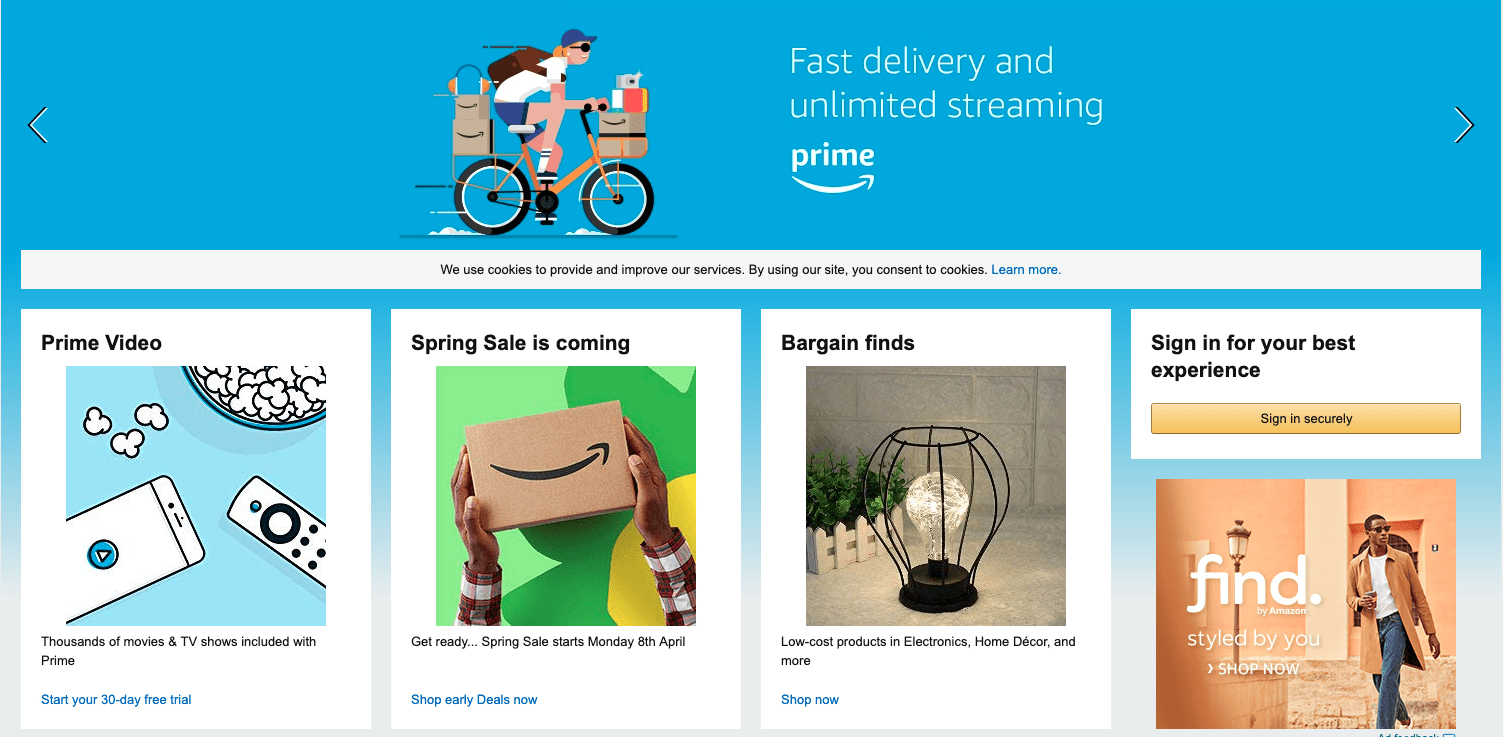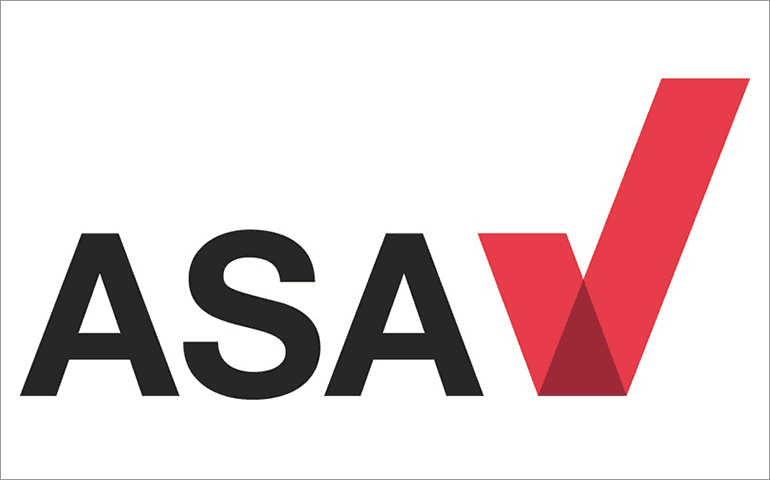Singapore proposes a new law to stop fake news, Mark Zuckerberg calls on government internet regulation, Amazon stops aggressively marketing its own brands and the ASA uses tracking technology to assess ads aimed at children
This week has seen Singapore suggest a new law that could ultimately fine tech giants for failing to stop the spread of fake news. If passed, companies could be fined up to SGD$1 million for breaking the regulations.
While Singapore's suggest law has met with criticism, Mark Zuckerberg is calling for more regulation when it comes to the internet. The Facebook founder wants governments to be more involved with updating current rules in four key areas.
Amazon has stopped aggressively marketing its own products following complaints, opting for a softer approach to showcasing its own brand items on its platform.
Finally, the ASA has used tracking technology for the first time to see what ads are being served to children under the age of 18, resulting in five gambling companies ending up in hot water.
Find out more about each of these stories with our latest news roundup below.
Singapore proposes new law to stop fake news spread
A newly-proposed law in Singapore could see tech giants like Google, Facebook and Twitter receive fines for failing to remove fake news. Designed to give the government more power to stop fake news, the Protection from Online Falsehoods and Manipulation Bill was tabled in parliament in Singapore on April 1st.
The law would mean that the government could fine companies up to SGD$1 million ($737,790) if they don’t remove what the government has called ‘falsehoods’. Companies will have to either post corrections to fake news or remove it completely from platforms.
On top of this, platforms will be required to disable accounts that are operated by bots. They will also have to block adverts on fake news sites, having an impact on their revenue.
Essentially, this means that if a website produces three pieces of fake news that are deemed to need a correction or removal within a single six-month period, the government can issue a declaration regime. While this won’t shut the site down or punish it, it will stop it from being able to profit from fake news.
Punishments
Part of this is that Google must shut off any ads running on the site so it cannot receive any revenue from Singapore. In addition, the website must publish a notice that lets visitors know about the declaration and be unable to seek any finance for the site for its duration.
Ministers will have a lot more control when it comes to removing or correcting fake statements of fact. However, opinions will not be punished under the proposed law.
Any publishers or platforms that do not comply with the government orders under the law can face a number of punishments, including fines, penalties and even jail time.
Individuals will have to correct any fake news they publish when told to so or they could face fines of up to $50,000 or face five years on prison.
Bots and click farms will also be affected, as anyone found to be using these to spread fake news could fake a $100,000 fine and 10 years in prison.
Concerns
A number of companies have expressed their concerns over the proposed law, especially as many tech companies have previously said that they do not believe legislation will stop fake news from being spread.
A spokesperson for Google said: "Misinformation is a significant challenge and one that we are working hard to address. We will study the bill to determine our next steps and urge the government to allow for a full and transparent public consultation on the proposed legislation."
Facebook said that it was concerned that aspects of the law mean that the Singapore executive brand will end up with a lot of power to force platforms to remove what they have deemed to be fake, as well as push government notifications.
However, Mark Zuckerberg has recently said that government and regulators need to do more to shape the internet, which is seems that Singapore is attempting to do. Find out more about Zuckerberg’s recent statement below.

Zuckerberg calls for governments to update internet rules
Mark Zuckerberg, the founder and chief executive of Facebook, has said governments and regulators need a more active role in securing the internet. In an opinion piece written for the Washington Post he said that the rules for the internet need to be updated in order to "preserve what’s best about it".
According to Zuckerberg, new internet regulations are needed in four areas: harmful content, election integrity, privacy and data portability.
Harmful content
While he says that Facebook provides a great way for people to "use their voice" and this can mean a number of benefits, this also raises for problems. The platform needs to keep people safe from hate speech, which means Facebook has to decide what counts as hate speech, terrorist propaganda and more.
Zuckerberg said that although Facebook’s policies are review continually with input from experts, mistakes are still made, as are decisions that people won’t agree with.
"Lawmakers often tell me we have too much power over speech, and frankly I agree," he said. "I’ve come to believe that we shouldn’t make so many important decisions about speech on our own."
To combat this, Facebook is creating an independent body to allow people to appeal the company’s decisions. On top of this, the platform is working with governments to ensure its content review systems are effective.
However, he said that a standardized approach is needed across platforms and publishers to tackle the problem. One idea Zuckerberg puts forward is for third-party bodies to "set standards governing the distribution of harmful content and to measure companies against those standards."
Protecting elections
While Facebook has made changes to the way political ads are published on the platform, Mark Zuckerberg said that Facebook’s systems would be more effective if there were common standards for verifying this type of ad. This would require regulation.
He highlighted the fact that political advertising laws only focus on candidates and elections and do not deal with divisive political issues, which is where the most attempted interference takes place. Other laws only apply during elections, but the information campaigns carry on well after these are over.
There are also issues arising when it comes to the way in which political campaigns use data and targeting. All of this is why Zuckerberg believes that "legislation should be updated to reflect the reality of the threats and set standards for the whole industry."
Privacy
According to Zuckerberg, a globally harmonized framework is needed for privacy and data protection. He said that worldwide, people have called for privacy regulation that is in line with the GDPR put in place in Europe, which he agrees would be beneficial if more companies implemented similar regulations.
He said that privacy regulations in the US and the rest of the world should build on GDPR. This should include regulations that enable people to choose how their information is used but still enable companies to use this information for safety and service purposes.
Regulations should stop data from being stored locally in order to ensure it is not vulnerable. They should also include ways of holding companies accountable when they fail to protect user data, he said.
Data portability
Finally, Zuckerberg said that regulations should ensure data portability. This means that people should be able to move their data to another service after sharing it with a different one, in order to provide more choice and enable future innovation and competition.
He said that this is important not only for the internet but for creating the services that people want. Data portability, he continued, should be easier but this means clear rules are needed in order to clarify who is responsible for data protection when it moves between services.
Zuckerberg finished his opinion piece by saying: "The rules for governing the internet allowed a generation of entrepreneurs to build services that changed the world and created a lot of value in people’s lives. It’s time to update these rules to define clear responsibilities for people, companies and governments going forward."

Amazon stalls aggressive sales techniques of own products
Amazon has stopped aggressively advertising its own products following criticism. The retail giant has been giving its own products preferential treatment on its e-retail platform, including preferential search rankings and high visibility, affecting competitors selling via Amazon.
It seems that the softening of its tactics is in response to companies calling it out and could be an attempt to stop any future criticism. It means that it is currently stopping some of its aggressive techniques, but it is not clear how long this will last.
Amazon’s tactics saw its own products displayed under a ‘Top Rated from Our Brands’ when users searched for products. This would appear at the top of results, giving its own products preferential treatment. However, this has now been pushed further down the page.
Amazon has also removed many of its own products from the ‘Similar Items to Consider’ section on product pages.

Asa uses tracking tech to highlight gambling ad rule breakers
The Advertising Standards Authority (ASA) has used monitoring technology to track adverts being served to children. As a result, the ASA has banned adverts from five gambling sites after it used avatars to simulate the online browsing behaviour of children.
This is the first time the ASA has used monitoring technology, with the avatars being used to see what adverts were being targeted at children from six-years-old. Over a two-week period in 2018, adverts were served to the monitoring profiles 10,754 times across 24 children’s websites and 20 YouTube channels.
Included in these ads were 23 different gambling adverts, which were visible to the "children" 151 times across 11 different websites. No gambling ads were visible to the avatars on the YouTube channels.
Only five operators were found to have broken rules around targeting under-18s with gambling ads, with 43 appearing only on non-logged-in sites. Vikings Video Slot was the worth offender, with 122 of the ad impressions and 10 of the individual ads. This meant it represented 81% of the total ads seen by the child avatars.
This project was part of broader plans for the ASA, which will see it use technology to make the policing of online ads easier. It will help the ASA better understand what is happening online and enable it to me more proactive.
Gemma Rosenblatt, the ASA’s research specialist, told Marketing Week: "We think this technology has a lot of potential. It gives us a good idea of what’s out there, which is sometimes distinct compared to what people might complain about.
"You’re talking about young children who may not know what they should or shouldn’t be looking at on their own, so this gives us a sense of what’s being served to those children."
The gambling operators who were found to have broken the rules were instructed to take immediate action to make sure their adverts weren’t being served to children. While all the companies accepted that they had broken rules, the majority of them said this has happened due to mistakes made by third-party companies. This highlights the importance of brands ensuring any third parties are not breaking rules.









